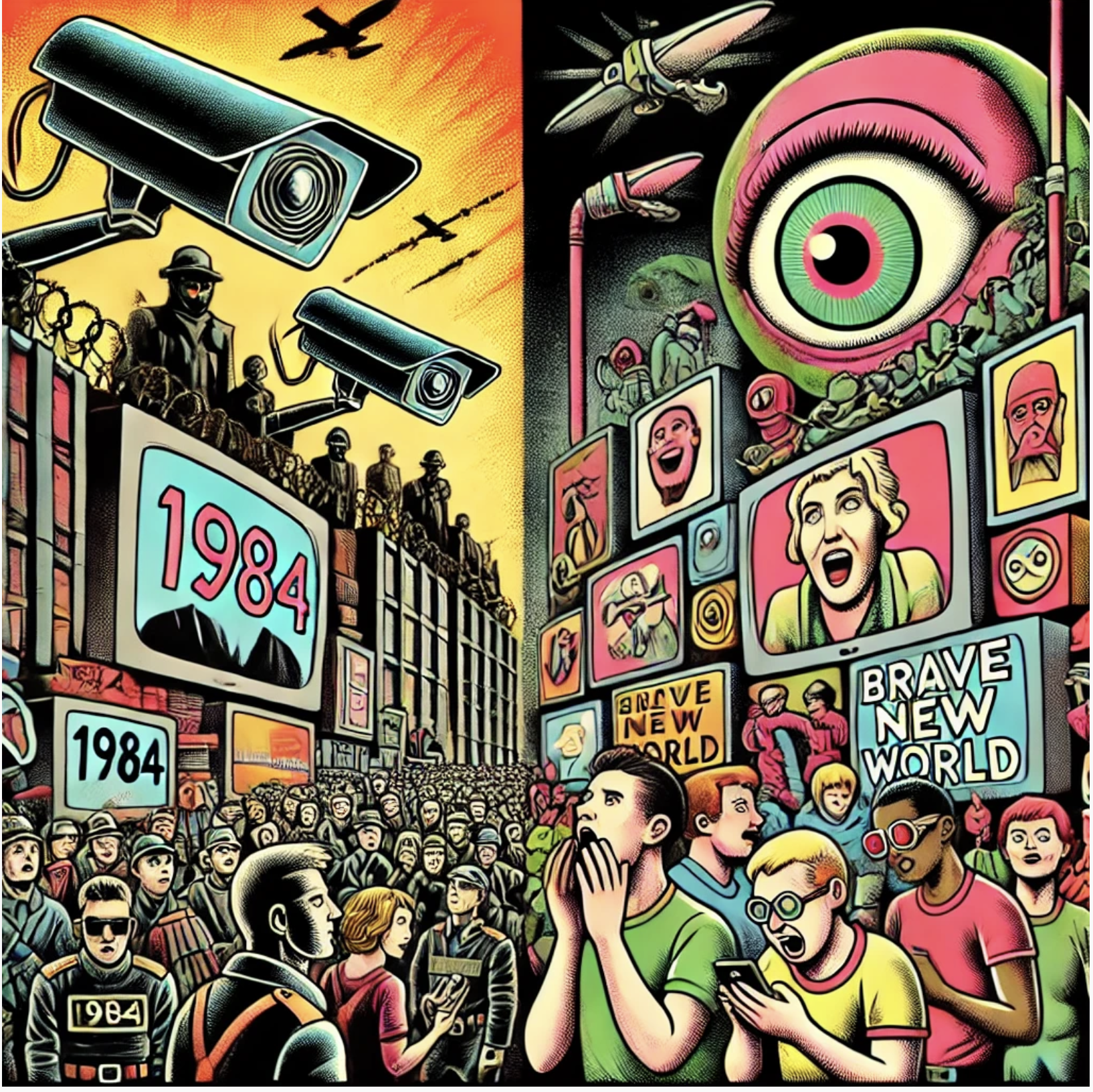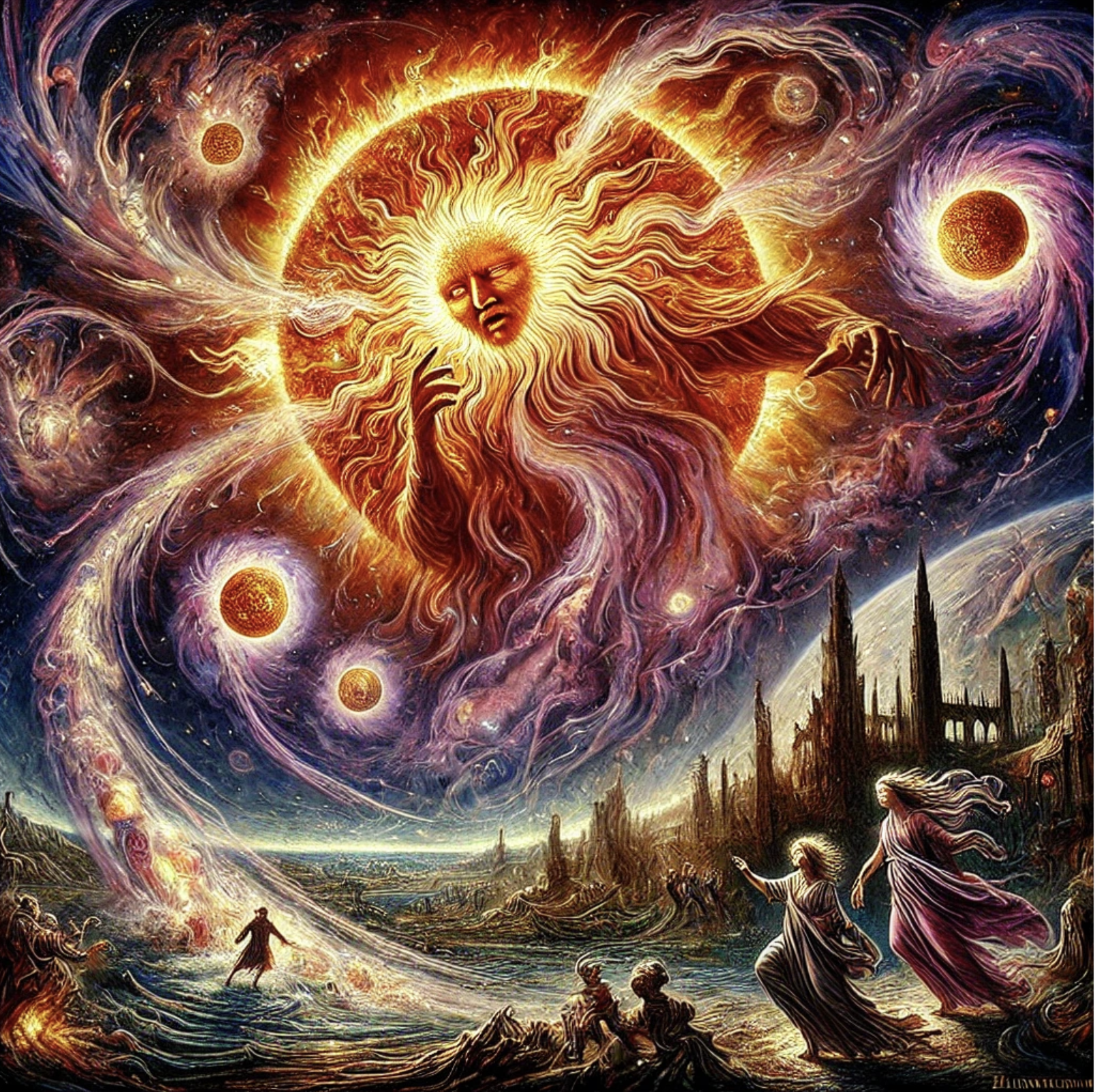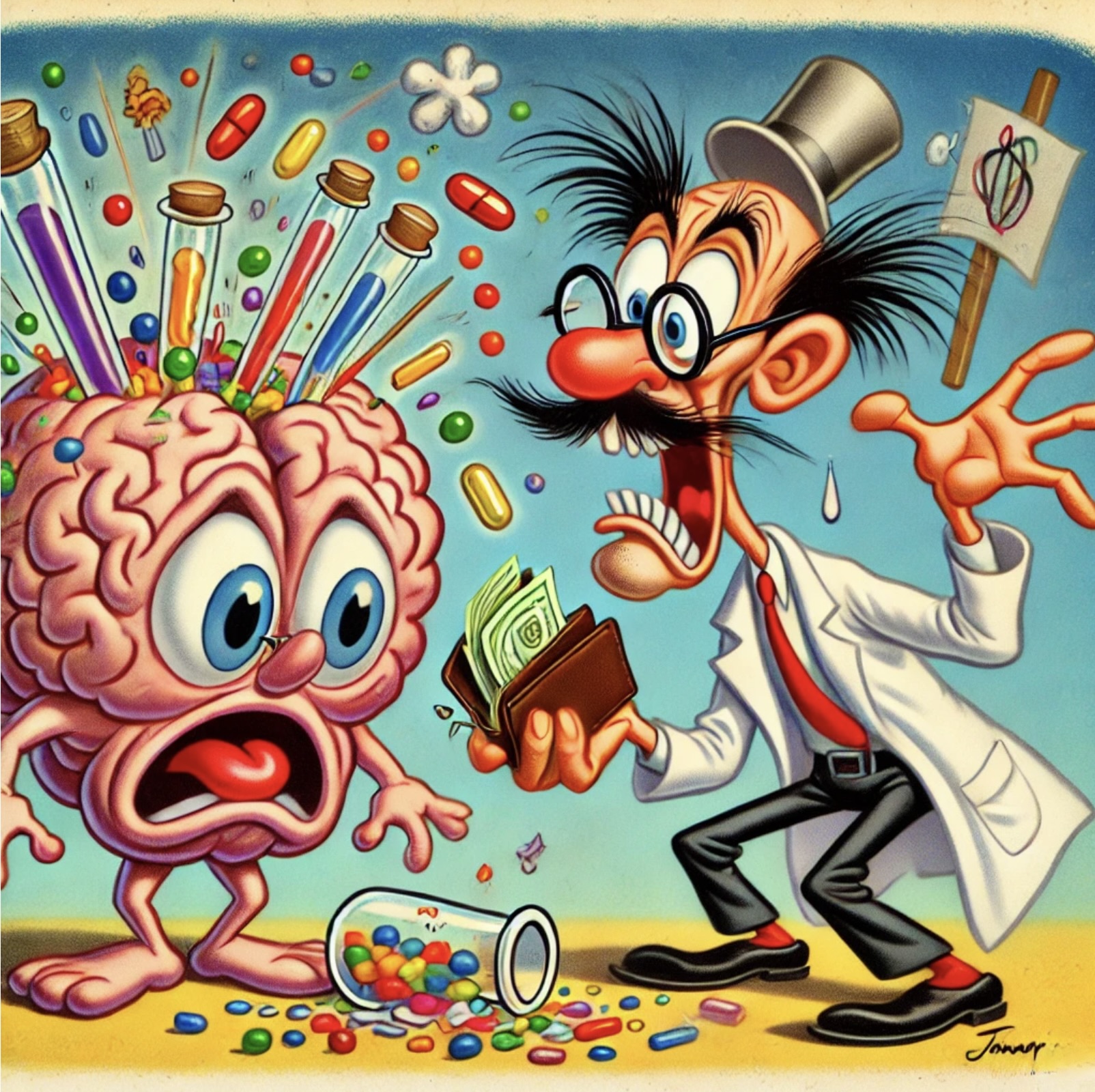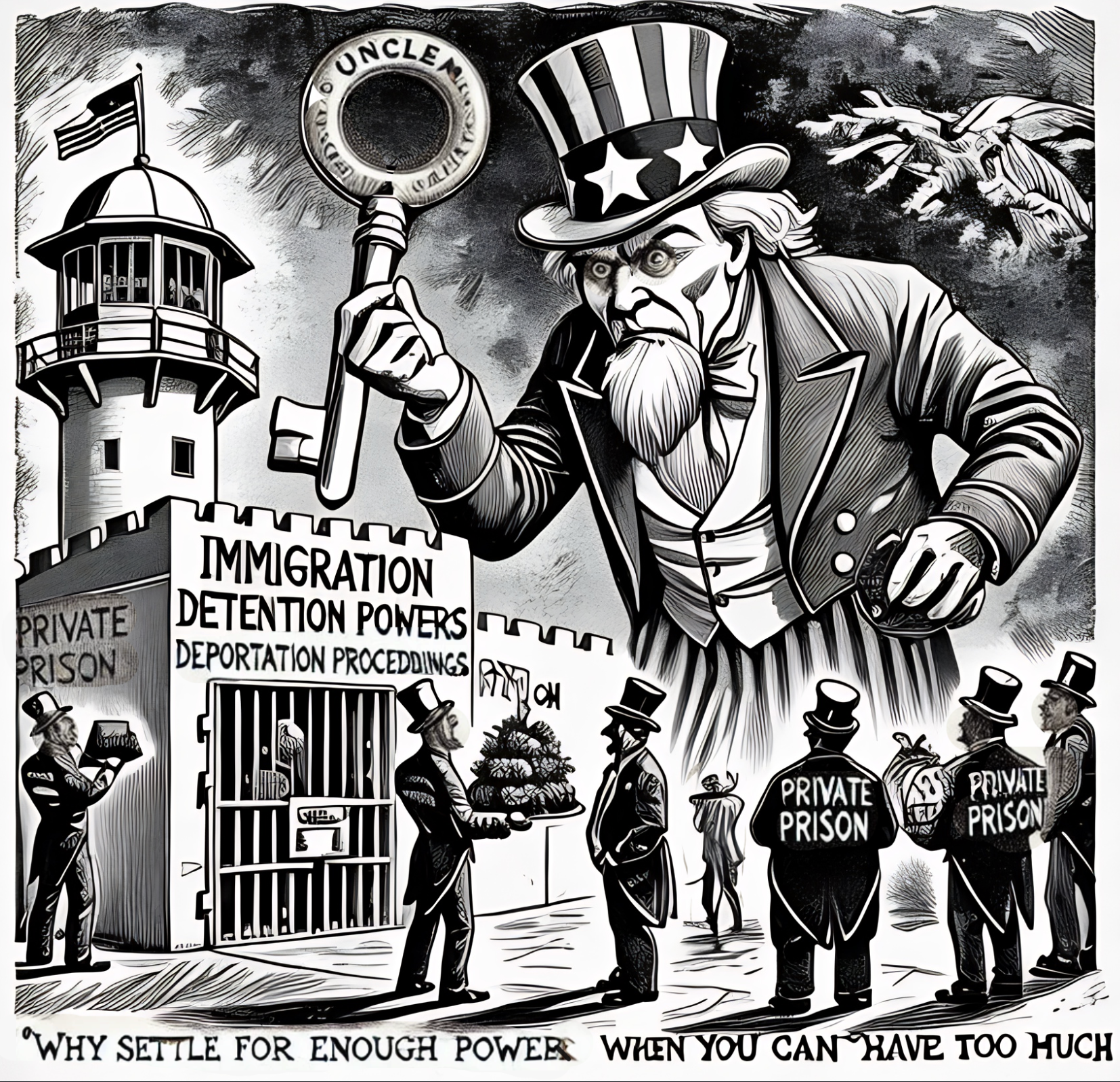Welcome, citizens of the future! Or is it the present?
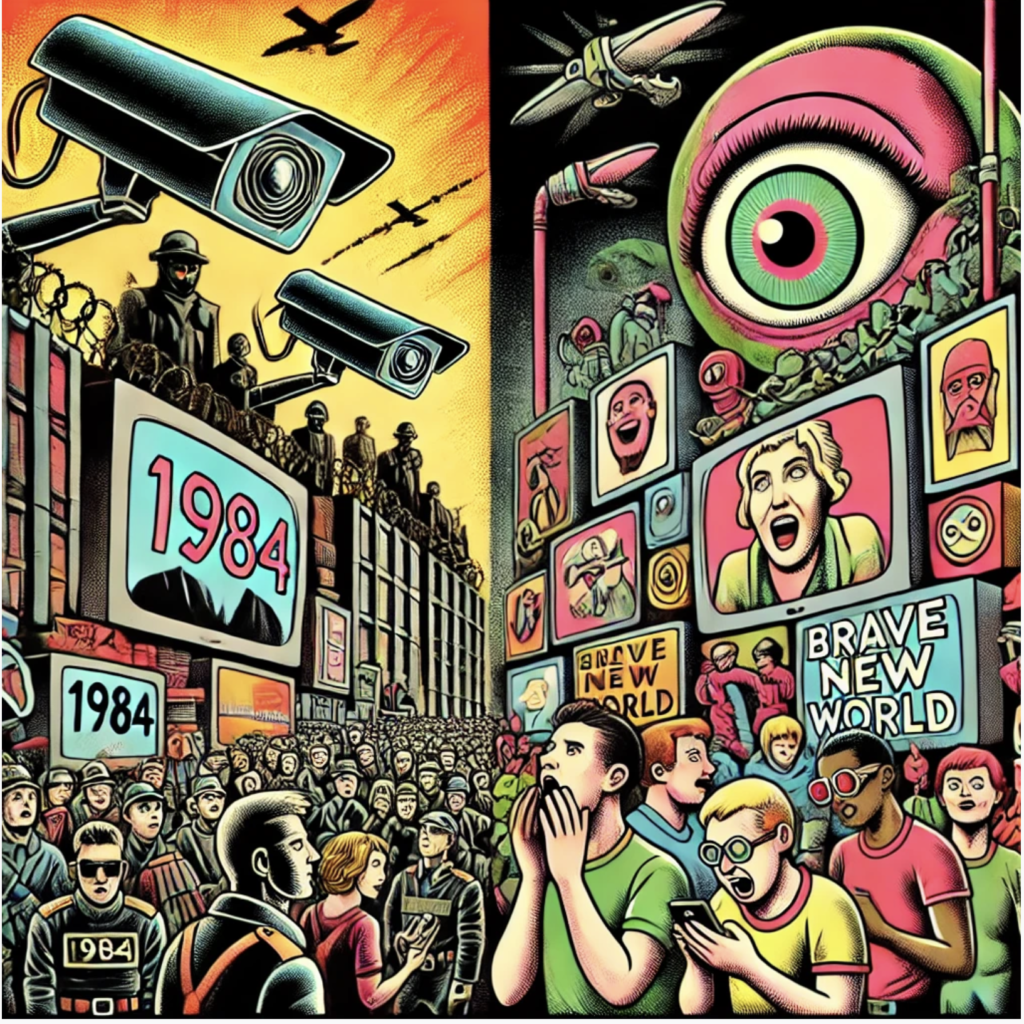
Once upon a time, dystopian futures were just fun thought experiments for English majors and conspiracy theorists. The future was bright, and things were going to get better and better. Back in 1985 (or year 95 in the Year of Our Ford) there was much self-congratulating in Reagan and Thatcher’s US and Britain that we had somehow managed to make it through 1984 with democracy intact. The past year Georgew Orwell’s novel 1984 had seen a resurgence in popularity, a dystopian warning of a totalitarian government that controls its citizens through fear and oppression (Big Brother, thoughtcrime, and doublethink).
Neil Postman wrote in the his book Amusing Ourselves to Death (1985) that it wasn’t Orwell’s vision that we had to guard against, it was Aldous Huxley’s Brave New World:
“…in Huxley’s vision, no Big Brother is required to deprive people of their autonomy, maturity and history. As he saw it, people will come to love their oppression, to adore the technologies that undo their capacities to think. What Orwell feared were those who would ban books. What Huxley feared was that there would be no reason to ban a book, for there would be no one who wanted to read one. Orwell feared those who would deprive us of information. Huxley feared those who would give us so much that we would be reduced to passivity and egoism. Orwell feared that the truth would be concealed from us. Huxley feared the truth would be drowned in a sea of irrelevance. Orwell feared we would become a captive culture. Huxley feared we would become a trivial culture, preoccupied with some equivalent of the feelies, the orgy porgy, and the centrifugal bumblepuppy. As Huxley remarked in Brave New World Revisited, the civil libertarians and rationalists who are ever on the alert to oppose tyranny ‘failed to take into account man’s almost infinite appetite for distractions.’ In 1984, Huxley added, people are controlled by inflicting pain. In Brave New World, they are controlled by inflicting pleasure. In short, Orwell feared that what we hate will ruin us. Huxley feared that what we love will ruin us.”
Fast forward to the second decade of the 21st Century, and we’ve somehow found ourselves living in a mix of 1984 and Brave New World—but instead of George Orwell’s bleak surveillance state or Aldous Huxley’s mindless pleasure dome, we’ve got both, where people are tracked by facial recognition software and distracted by TikToks of cats falling off furniture. Congratulations! You’re in the ultimate dystopian mashup!
Then there’s Orwell’s nightmare—1984 for the developing nations, if you will. Surveillance, government overreach, thought police. Only now, Big Brother doesn’t have to break into your house to install a camera because you carry one in your pocket. And you paid a thousand bucks for it! Look at you, participating in your own oppression—how brave and new of you.
But what about the semi-privileged folks stuck in the middle of these dystopian spectrums, the everyday citizens who aren’t quite living under Orwellian control? On one hand, their every move is monitored by algorithmic overlords, and on the other, they’re pacified by a steady stream of influencer drama and TikTok dances.
If the 2020s version of Brave New World isn’t satisfying everyone’s craving for blissful distraction—or worse, if it’s just not in the budget for those dealing with economic anxiety—don’t worry, there’s always the alternative: 1984-lite, now available in the guise of Trumpism and European far-right nationalism. It’s the perfect option for those who feel left behind by globalization but still want to participate in a good, old-fashioned, fear-driven authoritarian regime! This version comes with all the classic features: surveillance, nationalism, and just enough paranoia to keep you constantly on edge—but don’t worry, the entertainment industry will still provide the distractions. After all, nothing says “democratic backsliding” like scrolling through Twitter while debating whether it’s fascism or just “tough love.”
What Can We Do?
Well, for starters, put down your phone. Seriously, put it down…once you’ve finished reading this, of course. Limit your screen time to something less than the daily news cycle of doom scrolling. Engage in something that requires more brain power than checking your notifications. Go outside, read a book (one that’s not on a glowing screen), or maybe even talk to another human.
Next, we need to support independent media—people who actually care about uncovering the truth, rather than just chasing clicks. The kind of journalists who want to hold power accountable, not get invited to fancy galas with the people they’re supposed to be exposing. If we don’t do this, we’ll be left with the news equivalent of a cotton candy machine: sweet, fluffy, and completely devoid of substance.
And finally, don’t elect the usual suspects. Yes, the world is a dumpster fire, but it’s our dumpster fire. For Americans living in a dark blue or red state, vote for the Green, Libertarian, or third party candidate who is opposed to genocide. If you live in a swing state, hold your nose and vote for the Democrats, but don’t ignore them as they move further center right to try and appeal to big donors and Republicans.
So, which dystopia are we living in? The one where we’re watched, or the one where we’re entertained to death? Trick question—it’s both. Welcome to Election Year 2024! Where Orwell and Huxley shake hands while we watch cat videos on our government-monitored phones.
